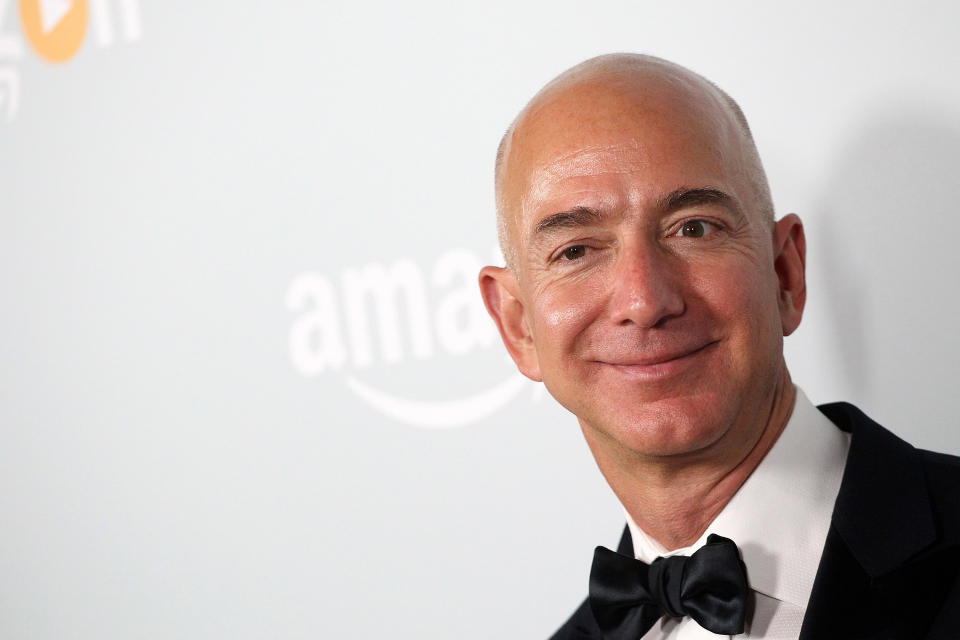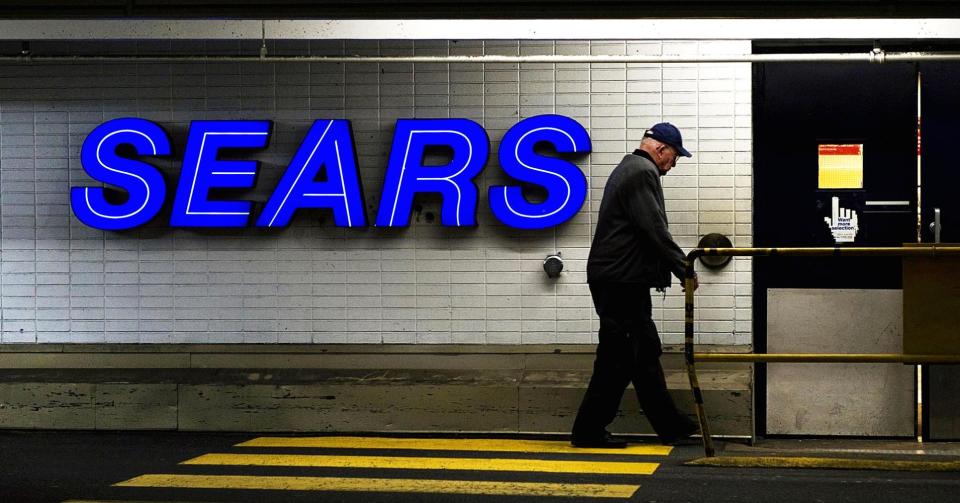Walmart's latest move to undercut Amazon Prime is a huge win for shoppers
Walmart (WMT) has unveiled its latest move to undercut Amazon Prime (AMZN).
And the net result is a big win for consumers.
On Tuesday, Walmart announced a new initiative that will see 2 million frequently ordered things like baby products, cleaning supplies, and some food items enjoy two-day free shipping. And unlike Amazon Prime or Walmart’s previous “Shipping Pass” program, there is no membership fee to enjoy this perk.

Marc Lore, former head of Jet.com and now head of Walmart’s e-commerce operations after Walmart purchased Jet for $3 billion last year, said on a conference call that, “In today’s world of e-commerce, two-day free shipping is table stakes. It no longer makes sense to charge for it,” according to Reuters.
And in this, Lore is saying that if you want to be a real player in online shopping, you need to offer free two-day shipping. Anything less is simply unacceptable to customers.
Of course, if you’re a consumer, this is great news: the things you need to buy all the time are going to continue getting cheaper and easier to buy.
And while the easy read on this announcement is that Walmart is moving into Amazon Prime’s territory, what it really does is highlight just how differently Walmart and Amazon are approaching their retail businesses.
Walmart has been and remains a retailer first. The company’s success was built on scale — offering more products in one place at lower prices than any competitor could offer.
Certainly Amazon’s initial and continued foray into retailing is, like Walmart, predicated on scale. But with the internet’s customer acquisition cost bordering on zero, Amazon hasn’t been able to leverage its scale to achieve the same profit ends as that Walmart has. (Amazon’s stated aim, however, isn’t profit but free cash flow it can reinvest back into the business.)
Amazon, while breaking into the mainstream as a retailer, has now become a significantly more diversified business. In its most recent quarter, Amazon reported a profit of $252 million (on $22.3 billion in sales), more than all of which came from its web services business ($861 million).
Free shipping is “table stakes”
In his latest letter to Amazon shareholders, CEO Jeff Bezos said that, “We want Prime to be such a good value, you’d be irresponsible not to be a member.”
The first interaction most Prime members — of which there are an estimated 60 to 80 million in the US right now — have with Amazon’s “flywheel” is their retail channel. And, of course, these members don’t stop shopping: Amazon Prime members spend, on average, 4 times more per year than non-members on Amazon.
But Amazon Prime members are also pitched on the company’s video-on-demand offerings, its music-on-demand offerings, and exclusive shipping offers (like, for example, same-day delivery of some items in some markets), that non-members don’t get.

At $99 a year, these members are also incentivized to actually use these benefits and, as a result, theoretically stop shopping around for better deals on, say, toilet paper. But a better deal on toilet paper is exactly what Walmart is hoping to offer consumers. And without the annual fee.
Which is why Lore’s “table stakes” comment is something that should make everyone in the retail business either very afraid or very excited.
Lore’s implication, again, is that if you’re not offering two-day free shipping, there’s really no reason to even offer online shopping. And as we continue to observe the death of malls in the US and struggles of major big box retailers like Macy’s (M) and Sears (SHLD), the future of retail also begins to emerge.
It’s different for brands that consumers actively seek out
In a note to clients out earlier this month, analysts at Credit Suisse wrote that, “We believe one of the few offsets to the price-sensitive behavioral reality of consumers that does not require a radical long-term reworking of supply chain and buying organizations is investments in brands that consumers actively seek out.”
In plain English, this means that if you’re a retailer — specifically a clothing retailer — you can offer customers access to premium brands they can’t get anywhere else and remain differentiated from the Walmart’s and Amazon’s of the world.

Walmart’s latest push against Amazon is in the area of what analysts call consumer staples: things you have to buy and so, as a result, are more likely to want at the lowest price point.
And while it might be tempting for a clothing retailer to wade into the on-demand e-commerce space behemoths like Walmart and Amazon currently make look so attractive, scarcity and a difficulty in acquiring your products can create a brand exclusivity that powers the business.
“In our view, unique brands are increasingly important in light of the challenging traffic environment that marks the mall and strip centers, where compelling store environments are no longer enough to drive consumers that were already visiting the mall into your store over that of a competitor,” Credit Suisse wrote.
“If the 90s model was ‘our store environment is better than yours, so we’ll take the traffic,’ today’s model has to be predicated on ‘we have the brands you need, no one else does.’ … On that note, retailers increasing their emphasis on private label without accelerating brand investment are in for a rude surprise.”
Not all brands are going to want to offer their clothes through a retailer that is actively working to undercut its competition on price, online or otherwise.
And so as Walmart and Amazon continue to work for the recurring sales of low margin household essentials sent to your home in the most convenient fashion, brands offering more specialized items have a huge opportunity.
Which is another win for consumers — the essentials get cheaper, and the “special” products get more special.
—
Myles Udland is a writer at Yahoo Finance. Follow him on Twitter @MylesUdland
Read more from Myles here:
